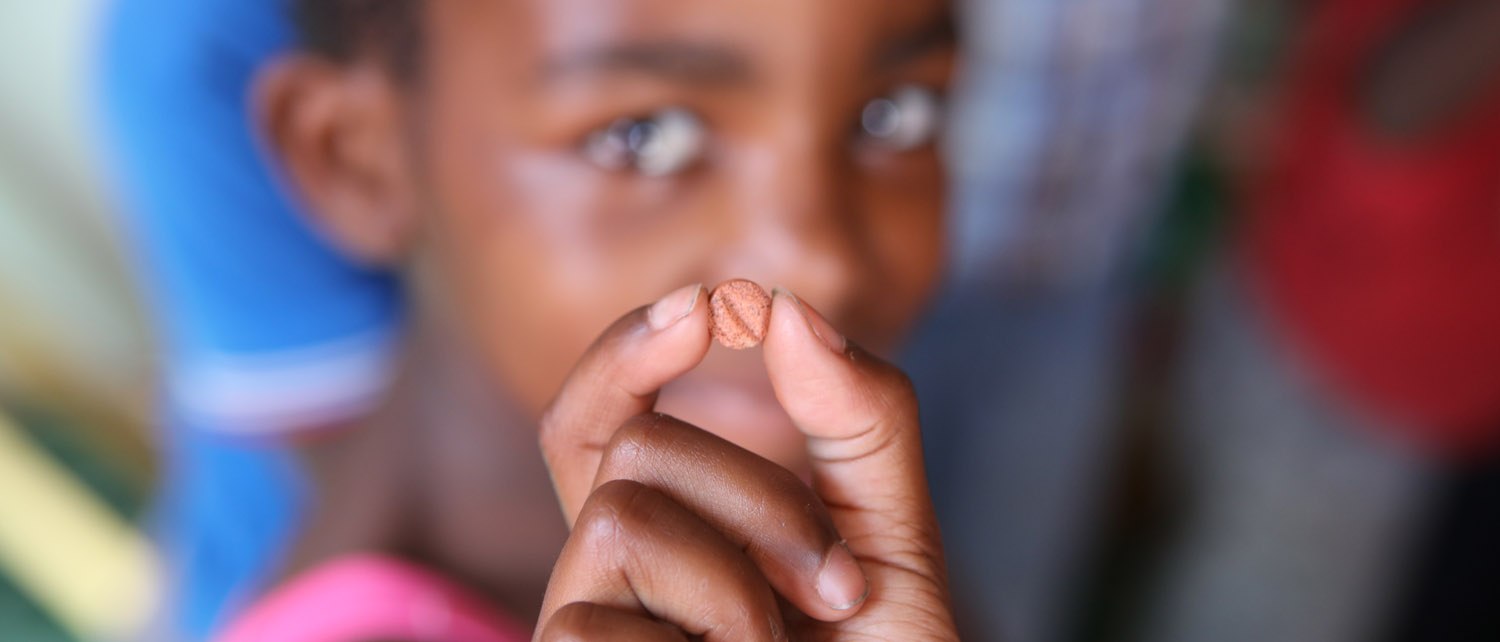The World Health Organization (WHO) has just prequalified a two-pills-in-one pediatric medicine that is critical for the continuation phase of the six-month treatment required to cure tuberculosis. The medicine – rifampicin 75mg + isoniazid 50mg – is a fixed dose combination (FDC) tablet manufactured by Macleods Pharmaceuticals Limited. WHO medicines prequalification activities are partly funded by the Bill & Melinda Gates Foundation and by Unitaid.
Efforts to develop the child-friendly TB fixed-dose combinations were led by TB Alliance in close collaboration with WHO, with support from Unitaid through the STEP-TB project. Launched in 2013, the STEP-TB (Speeding Treatments to End Pediatric Tuberculosis) project aimed to increase access to quality-assured, affordable TB drugs in suitable doses for children in countries with a high burden of the disease.
“Far too many children around the world have died for lack of access to TB medicines in the proper doses and in appropriate formulations,” said Dr. Mel Spigelman, president and CEO of TB Alliance. “The WHO’s prequalification of this product builds on the success of STEP-TB in the development and initial introduction of child-friendly TB medicines in the correct doses, and should enhance the widespread availability and access to these life-saving medications.”
WHO’s inclusion of the medicine in its Prequalification list means that the product has been found to meet international standards of quality, safety and efficacy. It is available for procurement through the Global Drug Facility, which supports TB medicines procurement for United Nations programmes, international procurement agencies as well as national procurement entities.
“The listing of this product is very good news,” said Dr Mario Raviglione, Director of the Global TB Programme at WHO. “Lack of adequate child-friendly medicines to treat TB has been a huge problem for a long time. The fact that we now have the medicines and they meet WHO quality standards is expected to rapidly expand access to effective treatment for children all over the world.”
The prequalified double FDC is preceded, for the first few weeks of treatment, by another product – rifampicin 75mg + isoniazid 50mg + pyrazinamide 150mg. That product is currently under review by the Prequalification team. Both FDCs were included in the WHO Model List of Essential Medicines for children, in May 2017.
The child-friendly FDCs were developed in line with new WHO guidelines (Guidance for national tuberculosis programmes on the management of tuberculosis in children), which revised the medicine’s dosing to achieve appropriate therapeutic levels for children. They are water-dispersible tablets and have a pleasant taste. They offer the opportunity to simplify and improve treatment for children around the world and are therefore likely to enhance adherence and completion of treatment, as well as to prevent the development of drug resistance.
Update: December 12, 2017
WHO Prequalification Team - medicines has announced the prequalification of rifampicin 75mg + isoniazid 50mg + pyrazinamide 150mg, the additional pediatric formulation developed by TB Alliance through the STEP-TB project. This promising development comes at a time of significant uptake of the new formulations. As of December 2017 it is estimated that over 700,000 treatment courses have been ordered by almost 80 countries.
Learn more about the STEP-TB project in New Pathways for Childhood TB Treatment, a new report from TB Alliance and Unitaid on the development and scale-up of these new pediatric formulations.
###
About TB Alliance (Global Alliance for TB Drug Development)
TB Alliance is a not-for-profit organization dedicated to finding faster-acting and affordable drug regimens to fight tuberculosis (TB). Through innovative science and with partners around the globe, we aim to ensure equitable access to faster, better TB cures that will advance global health and prosperity. TB Alliance operates with support from Australia’s Department of Foreign Affairs and Trade, Bill & Melinda Gates Foundation, Germany’s Federal Ministry of Education and Research through KfW, Global Health Innovative Technology Fund, Irish Aid, Indonesia Health Fund, National Institute of Allergy and Infectious Disease, Netherlands Ministry of Foreign Affairs, UNITAID, United Kingdom Department for International Development, United States Agency for International Development, and the United States Food and Drug Administration. For more information, please visit: www.tballiance.org
About UNITAID
UNITAID is an international organization based in Geneva that is finding new ways with partners to prevent, treat and diagnose HIV/AIDS, tuberculosis and malaria more quickly, more cheaply and more effectively. Its investments help turn ground breaking ideas into effective solutions that enable partners to achieve the highest impact for those in need.


